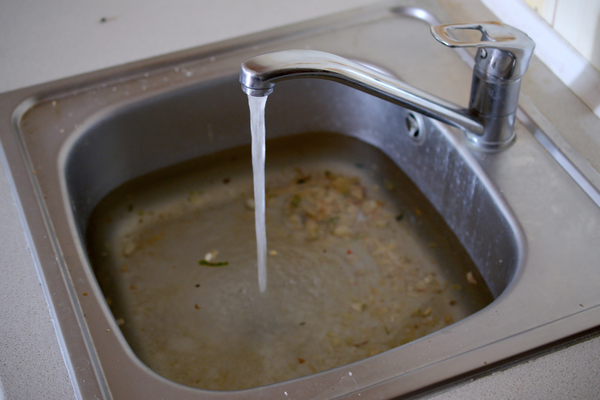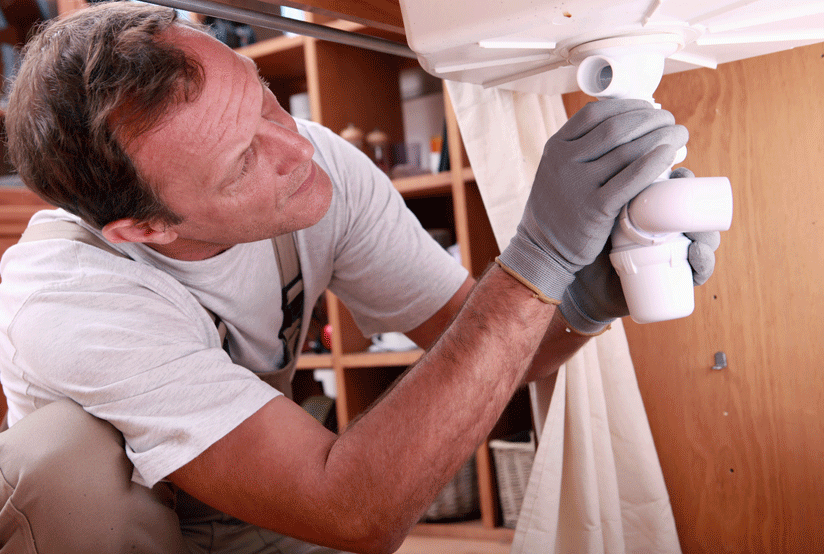Straightforward Ways To Fix A Slow-Draining Sink
Straightforward Ways To Fix A Slow-Draining Sink
Blog Article
How do you really feel about Solved! How to Fix a Slow Sink Drain?

Introduction
We've all existed: You're brushing your teeth or cleaning your hands, and you discover the water merging in the sink. Rather than quickly swirling away, it lingers, turning your once-refreshing morning regimen into a miniature overload scene. A slow-draining sink isn't simply irritating; it's usually an indicator of larger pipes issues prowling under the surface. The good news is that the majority of slow-draining sinks can be repaired with a little know-how, a couple of fundamental tools, and some perseverance. Prepared to tackle this project head-on? Let's roll up our sleeves and dive right in.
Understanding the Sources Of a Slow-Draining Sink
Before you start poking around in your pipelines, it helps to understand what might be creating the downturn. Understanding the root cause makes it less complicated to select the ideal solution.
Tools and Materials You'll Require
The right tools make all the distinction. Luckily, you won't need a completely equipped plumbing technician's van to finish the job.
Step-by-Step Guide to Repairing a Slow-Draining Sink
Currently, allow's get involved in the nitty-gritty. This step-by-step procedure will lead you with basic techniques to restore your sink's drain.
Step 1: Get Rid Of and Clean the Stopper
Typically, the stopper (that little plug you push down to block water) is the very first offender. Remove it thoroughly and clean off any kind of hair or substance trapped around its base. Wash it completely before placing it back in place.
Action 2: Utilize a Plunger to Remove Debris
Got that bettor ready? Placement it over the drain and offer it a few company pumps. The idea is to create suction that can loosen up any clog. If you see little bits of debris floating up, you're on the appropriate track.
Step 3: Attempt a Drain Snake or Cable Wall Mount
If the bettor does not work, it's time to bring out the drain snake. Gently feed it into the drain and spin as you go. You could really feel some resistance-- that's most likely the blockage. Maintain twisting and pulling until you get rid of the obstruction. If you don't have a drainpipe serpent, an aligned wire hanger can operate in a pinch.
Step 4: Apply a Do It Yourself Drainpipe Cleaner
An all-natural cleaner made from cooking soft drink and vinegar can break down recurring crud. Pour half a cup of cooking soft drink into the drainpipe, complied with by half a mug of vinegar. Allow it fizz for about 15 minutes, then flush with warm water. This chain reaction frequently does wonders for minor clogs.
Tip 5: Reassemble and Test the Sink
Placed whatever back together and run the tap. Does the water currently swirl away at a reputable speed? If yes, offer yourself a pat on the back. Otherwise, don't misery-- there are still a couple of more dress up your sleeve.
Important Devices for DIY Services
A plunger is your go-to beginning point. A tiny, sink-sized plunger creates suction that can remove minor blockages. For even more relentless clogs, a drain serpent (occasionally called a plumbing's auger) functions marvels. A set of gloves, a flashlight, and maybe a pair of protective safety glasses are likewise useful.
Recommended Cleansing Solutions
Moderate recipe soap and hot water can aid break down greasy build-up. A mixture of baking soft drink and vinegar is a reliable natural home remedy, and chemical cleaners use a more eco-friendly method. Keep chemical drain cleansers as a last resort, as they can be severe on your pipes.
Common Perpetrators Behind Slow Drainage
So, what's clogging points up? Commonly, it's a blend of everyday particles-- believe hair, soap residue, toothpaste deposit, and leftover food fragments. In time, these little bits gather and cling to the pipe walls, gradually narrowing the passage and making it harder for water to pass through. In many cases, natural resource from hard water can also add to the substance, creating the excellent storm for persistent obstructions.
When is it Time to Do Something About It?
If you see the water draining slower than normal, it's an excellent idea to step in earlier as opposed to later. Waiting as well long can bring about finish blockages, undesirable odors, or even pipe damage. If the water takes greater than a couple of secs to clear out after switching off the tap, consider it a warning and prepare yourself to put on your do it yourself hat.
Security First: Precautions and Prep work
Prior to you launch into unclogging mode, think of safety. You're handling potentially dirty water and debris, so slip on a set of gloves. If you're making use of chemical cleansers, make certain the area is well-ventilated and adhere to the guidelines on the tag.
Protective Equipment and Work Space Configuration
Lay down some old towels or dustcloths around the sink location to catch dashes. Remove any type of items that could get in your means, like soap dispensers or toothbrush owners. Make certain you have excellent lighting-- get hold of a flashlight if needed.
Different Approaches for Stubborn Clogs
Not all blockages are produced equal. If your sink still declines to coordinate, consider these alternate remedies.
Sodium Bicarbonate and Vinegar Approach
We currently discussed this, yet it's worth keeping in mind once more. This mild, green method is safer than chemical cleansers and typically fairly effective.
Chemical Drain Cleansers
Enzyme-based cleansers utilize natural germs to absorb organic matter. They're an exceptional choice if you're wanting to avoid severe chemicals. Simply keep in mind, they might take a bit longer to function their magic.
Chemical Drain Cleansers: Pros and Cons
Chemical cleansers can blow up via tough obstructions quick, however they're not without disadvantages. They can generate warm and fumes, damages pipes if made use of excessively, and pose ecological threats. Use them sparingly, and constantly comply with the directions very carefully.
Preventive Measures to Keep Your Sink Flowing
Avoidance is the best remedy. By taking on a couple of simple habits, you can keep your sink from decreasing to begin with.
Normal Cleaning Habits
Wipe down the sink container and component location regularly. Get rid of hair or food fragments prior to they have a possibility to wash down the drain.
Avoiding Hazardous Compounds Down The Tubes
Think twice prior to unloading coffee premises, oil, or fibrous veggie scraps down the sink. These offenders cling to pipeline wall surfaces, developing blockages over time.
Regular Upkeep Checks
Arrange a fast month-to-month inspection. Run hot water through the sink for a couple of mins, focusing on the circulation. If it appears sluggish, act quick before it comes to be a full-on clog.
When to Call a Professional Plumbing Technician
Often, despite how tough you attempt, that clog simply will not budge. That's when it's time to generate the pros.
Indications That Indicate an Extra Significant Issue
If your sink drains pipes gradually despite multiple efforts, or if you see water backing up in other fixtures (like your shower or bathroom), you may have a much more severe pipes issue hiding deeper in the system.
Balancing Do It Yourself Efforts with Professional Assistance
While do it yourself can conserve you cash and supply a feeling of success, there's no pity in calling an expert. A professional plumbing can analyze your whole pipes arrangement, making certain there's no underlying damages or long-lasting issue that can cost you a lot more later on.
Contrasting Prices and Long-Term Solutions
Before deciding, take into consideration the big picture. An inexpensive, quick fix might fix the problem briefly, however investing in a more permanent solution could conserve you money and anxiety in the long run.
Weighing the Expenses of Do It Yourself vs. Specialist Repairs
Do it yourself repairs typically cost little more than the price of a bettor or a container of cooking soda. Specialist solutions, on the other hand, included a price but might stop repeated concerns and expensive repair services later.
Purchasing High Quality Fixtures and Upgrades
If your sink's style adds to frequent obstructions, it may be worth upgrading to higher-quality fixtures or changing the pipes format. Consider this a financial investment in your home's capability and convenience.
Final thought
A slow-draining sink can seem like a small inflammation, yet it's commonly an indication that your pipes needs a little tender loving care. By comprehending the source, using the right tools and methods, and devoting to basic safety nets, you can maintain your sink flowing easily. And when all else falls short, never ever wait to call in a specialist-- your home's pipes deserves the financial investment in care and maintenance.
Three Common Ways to Fix a Slow Drain
Baking Soda Method
Boil a full pot of water. Measure out cup of baking soda and pour it down the drain. Then take cup of the magical cleansing substance known as white vinegar and drop that down there too. Allow the mixture to fizz in the drain for five minutes as the vinegar and baking soda combine. Now dump in that whole pot of boiling water. This combination of cleaning substances should clear out anything that is causing your sink to drain slowly. If it doesn t...
Zip-It
If the baking soda method doesn t clear out your drain, it may be because a significant amount of hair and/or other debris has collected there and you need to remove it. Purchase a Zip-It tool at any home improvement or hardware store and insert it into your drain. It will catch any collected hair or debris that s blocking the flow of water. Pull it out. If it s got a big clump of hair, etc. on the end, you ve probably got your culprit.
Drain Cleaner
If these methods don t work, there is the standard drain cleaner that you can also buy in a hardware store or even your local grocery store. It s better if you can use a household solution, but these drain cleaners often work in a pinch. They re very simple to use. You generally just dump them in your drain and wait. If even this method is not effective, it may be time to call the plumber.
https://www.mrrooter.com/oneida/about-us/blog/2017/july/three-common-ways-to-fix-a-slow-drain/

Do you like reading about Solved! How to Fix a Slow Sink Drain? Leave a short review directly below. We would be glad to find out your opinion about this page. In hopes that you come back again in the future. If you enjoyed reading our post please don't forget to pass it around. I take joy in reading our article about Solved! How to Fix a Slow Sink Drain.
Call Today Report this page